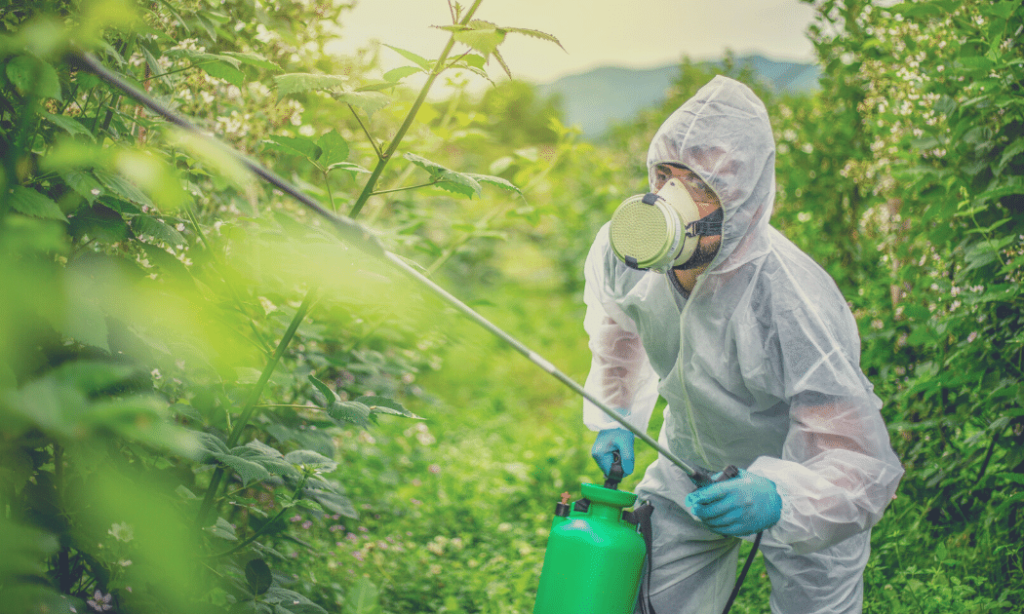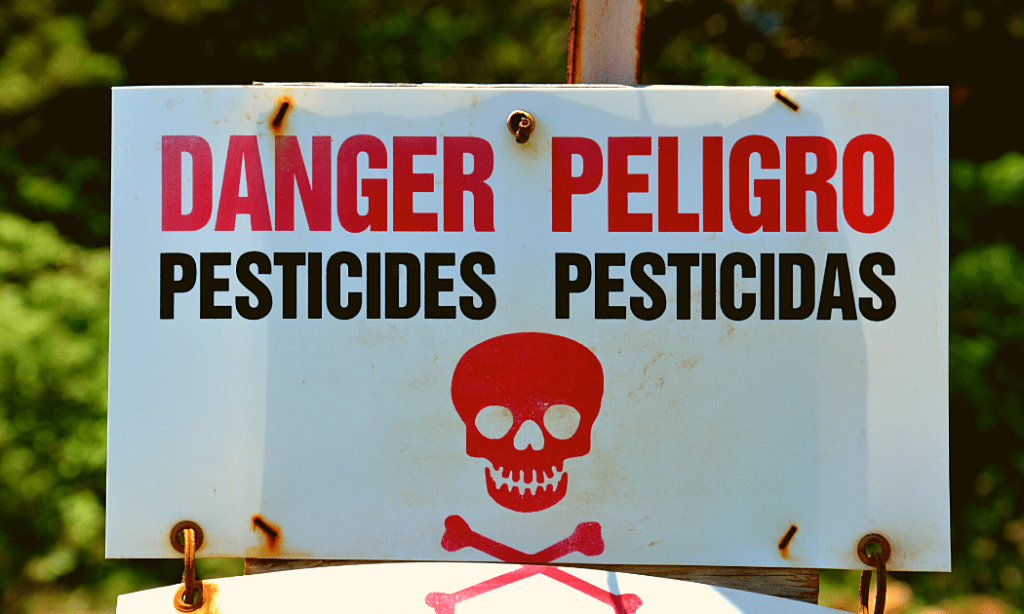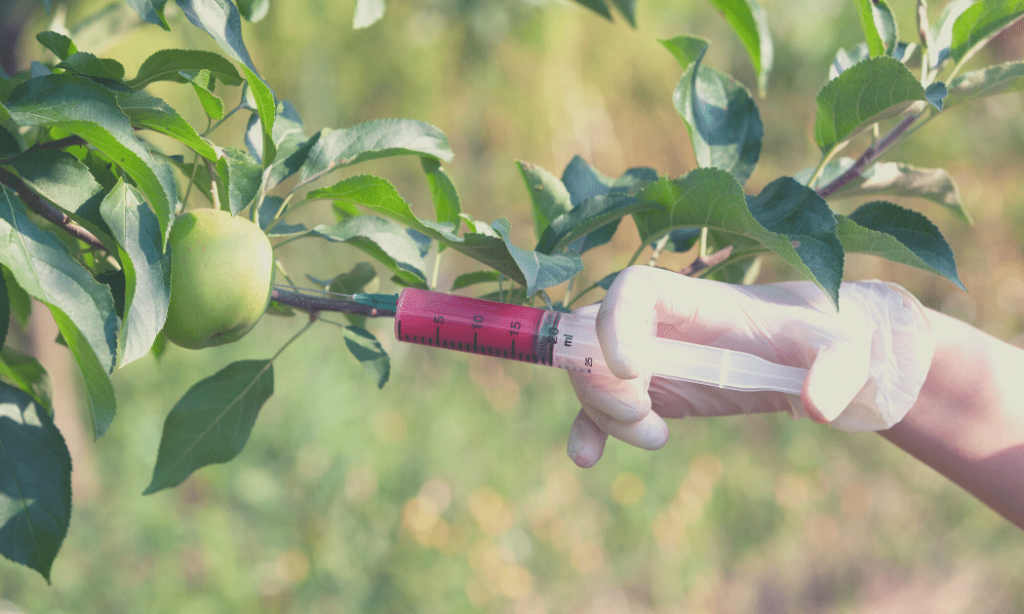From the time humans started farming, combating invasive weeds and insects has been a vital chore to producing a good yield. In the 1930s synthetic pesticides started being used. After WWII they became more widespread in the United States and then extended to the rest of the globe.
Today, Pesticides, herbicides and insecticides are used abundantly in developed countries. In fact, over 5 million tons were used in 2000. China and the USA are the two biggest pesticide consumers in the world.
Tons and tons of these poisons are being sprayed onto our food and are seeped into our water, land and air. What are their effects?

Pesticides And Your Health
“You are what you eat,” is a phrase that many of us have heard. When learning about biology you learn how literal that statement really is. Cells in your body are constantly replacing themselves, using the food we eat as material and fuel to do so.
Pesticides are not only present in the fruit and vegetables that we eat, but also in fish and meat. It’s been found in the water we drink and the air we breathe. What happens to your body when you regularly ingest these chemicals that are meant to kill insects, rodents and weeds?
“Within a human or animal body, pesticides may be metabolized, excreted, stored, or bio-accumulated in body fat.”[1] Exposure to them has shown to have both short and long term health effects on humans.
Both animal and human studies show that various pesticides affect fertility. Exposure have shown to alter hormones (including male and female sex hormones), lower sperm count, inhibit thyroid function, affect adrenal glands, cause spontaneous abortions, testicular atrophy, infertility and in some cases sterility.

Exposure to these toxins is also known to cause different types of cancers. Some, like arsenical pesticides, have been classified as group 1 carcinogens. In 1991 the IARC classified 61 pesticides as “probable human carcinogen.”[2] Of these Group 2A pesticides, some have been banned and some, like herbicide glyphosate and DDT, continue to be used. Others have not even yet been classified yet because more human and animal experimental studies are needed.
The central nervous system and the peripheral nervous system are also affected by both short and long term contact. It’s been scientifically well established that a single high exposure to these substances causes neurotoxic effects. This affects the motor and sensory nerve function (e.g. vibration sensitivity, balance, smell, visual contrast sensitivity). Case studies have also associated certain pesticides to Parkinson’s disease and Alzheimers.
Low exposure has been linked to “a higher frequency of self-reported symptoms, such as headache, dizziness, fatigue, insomnia, nausea, chest tightness, and breathing difficulty; impaired neurobehavioral performance, such as confusion, memory loss, and difficulty in concentrating, confirmed by batteries of neurobehavioral tests; mood disorders; and sensory and motor dysfunction, such as weakness, tremors, numbness, tingling, and visual and hearing disturbances”[2]

Finally synthetic pesticides have been linked to liver, kidney and skin disorders. Contact on the skin has resulted in dermatitis and irritations. Ingesting higher amounts of certain pesticides have caused toxic hepatitis, irritation to mucous membranes, liver damage and kidney failure.
In Conclusion
Non organic fruit and vegetables that you pick up at the store have not only been sprayed with one type of synthetic pesticide, but typically a multitude of different ones. According to Oxford Environmental Science research, “In the real world of pesticide manufacture and use, multiple pesticide exposures occur within a short time span, with different (…) effects which can interact among them in unpredictable ways either synergistically or antagonistically.” [2] A single type of pesticide can cause your body a lot of damage and the interaction of different ones can have unknown health outcomes.
Pesticides are not only damaging to you, but also to animals and the planet. It’s an unsustainable way of producing food and we urgently need to go back to more wholesome methods. Whenever possible, please choose organic fruit and vegetables. By doing so you are protecting you and your family and you are making choices that help animals and the planet.
To find out which 12 foods have the most pesticides sprayed on them in 2021, click here.
Sources: [1] Frontiers in Public Health, [2] Oxford Environmental Science Research






